
Our network partners
Professor Simon Gilbody
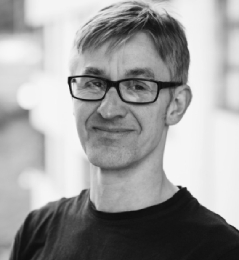
Simon trained as a psychiatrist and as a population scientist, and is a Professor of Health Services Research at the University of York. He founded and directs the Mental Health and Addiction Research Group (MHARG), and also helps to train medical students at Hull York Medical School.
Simon’s interest in Closing the Gap comes from his research into smoking among people who use mental health services. He led the world’s largest trial to help people who want to quit to quit smoking (the SCIMITAR trial).
Closing the Gap is led by Simon and he is keen to facilitate the growth of this network to help reduce health inequalities for people with severe mental ill health.
Professor Karen Bloor
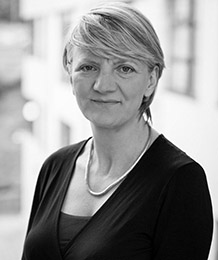 Karen is Professor of Health Economics and Policy, and the University of York’s Research Champion for Health and Wellbeing. She has worked at the University for over 20 years, focusing particularly on the application of economics to health policy.
Karen is Professor of Health Economics and Policy, and the University of York’s Research Champion for Health and Wellbeing. She has worked at the University for over 20 years, focusing particularly on the application of economics to health policy.
Her research covers a range of subjects relating to the financing and delivery of healthcare, including analysis of practice variations, the measurement of the quality of care and various aspects of healthcare reform.
Karen's role in Closing the Gap is to ensure interdisciplinarity and authentic collaboration are guiding principles for the Network.
Josefien Breedvelt
Josefien leads the strategic partnership between the Closing the Gap network and the Mental Health Foundation (MHF). Her role in Closing the Gap is to ensure that the interests of people with SMI are represented at every level, and that the research knowledge we generate has impact on policy and practice. Within the MHF Josefien leads on the development and management of research and evaluation. She also oversees the Janice Sinson Research Award and has set up podcasts with the British Journal of Psychiatry.
Josefien has worked in development roles at the Rehabilitation for Addicted Prisoners Trust and research posts at the Institute of Psychiatry. Currently, Josefien is working on projects focusing on prevention of depression, digital mental health, community prevention programmes and analysis of data relating to prevention, wellbeing, gender, online behaviour and social determinants. MHF have a long-standing commitment to improving the physical health of people who use mental health services.
Professor Carolyn Chew-Graham
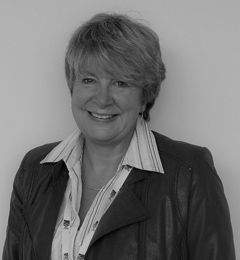
Carolyn is a GP Principal in Central Manchester, Professor of General Practice Research at Keele University, and Honorary Professor of Primary Care Mental Health at the University of Manchester. Carolyn’s research is at the interface between mental and physical health. Though a mixed methods researcher, Carolyn’s expertise tends to the qualitative. She draws on theories from both social sciences and psychology, always with a focus on clinical practice.
As ‘Curriculum Advisor, Mental Health’ to the Royal College of General Practitioners, Carolyn ensures that mental health is at the centre of UK primary care training. Carolyn is Editor of Health Expectations, a publication which puts the person at the centre of research reported. Carolyn’s role in Closing the Gap is to ensure that the primary care perspective is considered in all the work we undertake and commission.
Professor Rachel Churchill
 A psychiatric epidemiologist and Professor of Evidence Synthesis at the York's Centre for Reviews and Dissemination (CRD), Rachel is dedicated to improving healthcare decision-making with people experiencing mental health problems. Rachel works in methodological development (design, conduct, reporting and implementation of evidence synthesis), and is coordinating editor of the Cochrane Common Mental Disorders Group (CCMD).
A psychiatric epidemiologist and Professor of Evidence Synthesis at the York's Centre for Reviews and Dissemination (CRD), Rachel is dedicated to improving healthcare decision-making with people experiencing mental health problems. Rachel works in methodological development (design, conduct, reporting and implementation of evidence synthesis), and is coordinating editor of the Cochrane Common Mental Disorders Group (CCMD).
Rachel brings to the Closing the Gap network her experience in knowledge translation and mobilisation to ensure that the evidence generated within the Network informs policy and practice.
Dr Peter Coventry
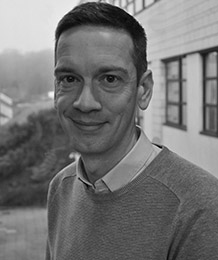 Peter is a senior lecturer in health services research with the Mental Health and Addiction Research Group and the Centre for Reviews and Dissemination at the University of York. He is a social scientist by background and draws on the full suite of applied health research methods, from evidence synthesis, to qualitative evaluations to clinical trials to generate evidence about how to integrate mental and physical health for people with mental health problems.
Peter is a senior lecturer in health services research with the Mental Health and Addiction Research Group and the Centre for Reviews and Dissemination at the University of York. He is a social scientist by background and draws on the full suite of applied health research methods, from evidence synthesis, to qualitative evaluations to clinical trials to generate evidence about how to integrate mental and physical health for people with mental health problems.
His current work with the DIAMONDS programme is focusing on supporting people with SMI and long term conditions to self-manage to improve their physical health. More recently his work has extended to understanding how the natural environment can support people with mental health problems to engage in activities that promote health and wellbeing.
Dr Sebastian Deterding
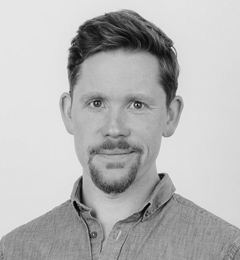 Sebastian is a senior research fellow/reader at York's Digital Creativity Labs who has done field-defining work in applied games and behaviour change design: using games and game design to make learning, work, physical exercise, and other activities more enjoyable and effective. In parallel, he has over 15 years' experience as a game and interaction designer creating engaging experiences for clients including the BBC, BMW, KLM, Novartis, Supercell, and numerous startups.
Sebastian is a senior research fellow/reader at York's Digital Creativity Labs who has done field-defining work in applied games and behaviour change design: using games and game design to make learning, work, physical exercise, and other activities more enjoyable and effective. In parallel, he has over 15 years' experience as a game and interaction designer creating engaging experiences for clients including the BBC, BMW, KLM, Novartis, Supercell, and numerous startups.
As part of the Closing the Gap Network, he is particularly excited about designing applications and games to meet the needs of people with severe mental ill health, and how the data created by them can help improve diagnosis and understanding how the environment affects mental health.
Dr Lina Gega

Lina is a reader in mental health at the University of York. Qualified as a nurse and psychological therapist, her current research and clinical work focus on interventions to improve health and quality of life for children and young people with mental health problems. She trains professionals and lay people in mental health and psychological therapies.
Lina is a teacher and senior advisor for undergraduate medical students and a research supervisor for postgraduate and doctorate students in health sciences. Her expertise is in digital technologies, focusing on their clinical utility as means to specialist interventions for people with mental health problems supported by non-specialists in the community.
Paul Heron
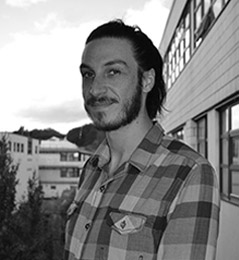
Paul studied psychology before pursuing an interest in practical research methods and techniques during his Master’s degree in 2014. He previously worked as a research coordinator in the NHS on a range of NIHR portfolio mental health research with a focus on SMI.
Paul is currently a Research Fellow in the Department of Health Sciences at the University of York and provides data management and visual dissemination support to the CTG: HWB Cohort. Paul is interested in study design and how novel ideas can be practically and ethically implemented.
Professor Rowena Jacobs
 Rowena is Professor of Health Economics in the Centre for Health Economics at the University of York. She is an expert on the economics of mental health care, and has published extensively on health policy reforms, incentives, organisation, funding and performance measurement pertaining to the provision of mental health services.
Rowena is Professor of Health Economics in the Centre for Health Economics at the University of York. She is an expert on the economics of mental health care, and has published extensively on health policy reforms, incentives, organisation, funding and performance measurement pertaining to the provision of mental health services.
Rowena will lead our big data research theme which will seek to explore the potential of the large amounts of information that are recorded on how people with serious mental illness use health services, how we can support a more proactive and preventative approach, and how we can harness the natural environment to improve their health.
Dr Debbie Maxwell
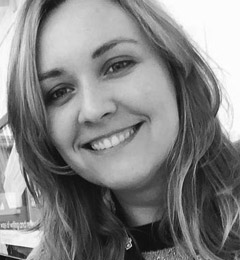 Debbie leads the Art and Creativity theme of the Closing the Gap Network. Debbie holds a Lectureship in Interactive Media at the School of Arts and Creative Technologies at University of York. Drawing on her background in both computing and design, Debbie’s research focuses on the roles of active storytelling and engagement in digital contexts. She is interested in the ways that people interact with and reshape technology through stories, as both method and artefacts, and across media.
Debbie leads the Art and Creativity theme of the Closing the Gap Network. Debbie holds a Lectureship in Interactive Media at the School of Arts and Creative Technologies at University of York. Drawing on her background in both computing and design, Debbie’s research focuses on the roles of active storytelling and engagement in digital contexts. She is interested in the ways that people interact with and reshape technology through stories, as both method and artefacts, and across media.
Debbie’s research uses an interdisciplinary approach drawing on a range of fields including Human Computer Interaction (HCI), ethnography, interaction design, social anthropology, and service design. Her research always involves working with communities using participatory methods. Debbie’s recent work in mental health includes the ‘Listening to Voices: Creative Disruptions with the Hearing Voices Network’ (2015-16), supported by the AHRC Connected Communities research project.
Dr Emily Peckham
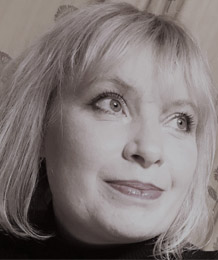 Emily trained first in industrial chemistry before moving into applied health services research, obtaining her PhD from the University of Leeds in 2012. Emily uses both qualitative and quantitative research methodologies, and is based in the York Mental Health and Addiction research group. She has led the largest ever trial of smoking cessation for people with severe mental ill health and is building a programme of research to understand the determinants of physical health among people who use mental health services.
Emily trained first in industrial chemistry before moving into applied health services research, obtaining her PhD from the University of Leeds in 2012. Emily uses both qualitative and quantitative research methodologies, and is based in the York Mental Health and Addiction research group. She has led the largest ever trial of smoking cessation for people with severe mental ill health and is building a programme of research to understand the determinants of physical health among people who use mental health services.
Emily oversees the large Closing the Gap interventional cohort, which forms the main research resource for the Closing the Gap network.
Professor Kate Pickett
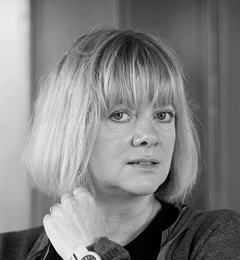 Kate is Professor of Epidemiology in the Department of Health Sciences at the University of York, and the University’s Champion for Research on Justice and Equality; she is a Fellow of the RSA and of the UK Faculty of Public Health. Kate’s research focuses on the social determinants of health and health inequalities, with a particular interest in child development. She is co-director of two large population-based birth cohort studies in the UK: Born in Bradford, and Born in Bradford’s Better Start.
Kate is Professor of Epidemiology in the Department of Health Sciences at the University of York, and the University’s Champion for Research on Justice and Equality; she is a Fellow of the RSA and of the UK Faculty of Public Health. Kate’s research focuses on the social determinants of health and health inequalities, with a particular interest in child development. She is co-director of two large population-based birth cohort studies in the UK: Born in Bradford, and Born in Bradford’s Better Start.
Kate is co-author, with Richard Wilkinson, of the bestselling books, The Spirit Level (2009) and The Inner Level (2018). Kate is also a co-founder and trustee of The Equality Trust and a global Ambassador for the Wellbeing Economy Alliance.
Dr Stephanie Prady
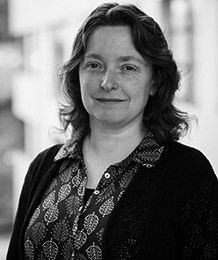 Stephanie is a senior research fellow in mental health inequalities in the Department of Health Sciences at the University of York. As a social epidemiologist with training in health services research she is dedicated to drawing together the best evidence on social inequalities with which to inform research and practice.
Stephanie is a senior research fellow in mental health inequalities in the Department of Health Sciences at the University of York. As a social epidemiologist with training in health services research she is dedicated to drawing together the best evidence on social inequalities with which to inform research and practice.
Along with Kate Pickett, she co-leads the Closing the Gap research into Health Inequalities where she and Kate will embed a cohesive inequalities agenda to the research carried out by the network. The goal is to better understand, and remediate, inequalities in health related to the social and economic conditions experienced by people with severe mental illness.
She is particularly interested in understanding and solving methodological problems related to the recording of social conditions in routine data.
Professor Piran White
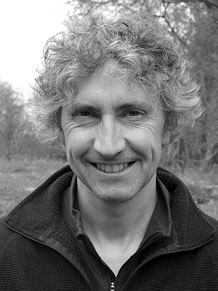 Piran is a professor in environmental management at the University of York. He is also co-director of the Interdisciplinary Global Development Centre (IGDC) at York. He is an ecologist by training but most of his current research is interdisciplinary, across the natural and social sciences, on themes around ecosystems, wildlife, health and wellbeing.
Piran is a professor in environmental management at the University of York. He is also co-director of the Interdisciplinary Global Development Centre (IGDC) at York. He is an ecologist by training but most of his current research is interdisciplinary, across the natural and social sciences, on themes around ecosystems, wildlife, health and wellbeing.
His research in the UK includes the links between human and ecosystem health, while in Latin America and the Caribbean, he is working on how better management of ecosystems can help to mitigate the human and environmental impacts of natural disasters and climate change. Together with Peter Coventry, Piran leads the Green and Blue-space theme in the Closing the Gap Network.
Dr Wanda Wyporska
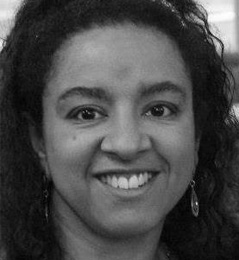
Wanda is the Executive Director of The Equality Trust (TET), the national charity that campaigns to improve quality of life in the UK by reducing social and economic inequality. Wanda is a Visiting Research Fellow at the University of York, a trustee of Gingerbread, Schools OUT UK and the Equality and Diversity Forum and Governor of a primary school in Tottenham.
The Equality Trust are knowledge partners with the Closing the Gap Network, and will ensure that our research findings are supported by effective campaigning to inform policy. The Equality Trust will assemble a network of practitioners and advocates to workshop and analyse how the findings might be used to impact practice and vice versa.
